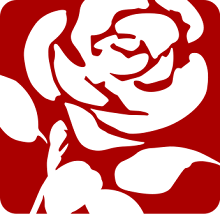Though Gordon Brown is seen by many beyond British waters to be the savior of the international banking system, taking decisive action last year to trigger an economic rebound, the year has been tough on him and his Labour Party in Britain. Polls are unfavourable, there have been calls for his resignation, and the Labour Party seem almost certain to be out of office in the next election.
However, the Labour Conference has shown that there is still life in the Labour Party. The Prime Minister knew he needed to deliver a speech that would unite the party and show the electorate that Labour were still the progressive party in Britain. Brown did not disappoint. The speech opened on the Prime Minister's decisive action on the economic crisis, introducing measures including "help for small businesses, targeted tax cuts for millions and advancing investment in roads, rail and education." Although the incumbent party, Brown adopted President Obama's campaign slogan, telling the conference delagates and the whole country that "change" has to influence the many, not just the priveleged few.
The Prime Minister said that while most of other political parties in the G20 knew they had to act to confront the economic downturn, it was only the Conservatives who thought it was best to do nothing. Brown put forward the credentials for the Labour Party to be the party of progress, the party of action, in confronting these crises, unlike the Conservatives.
Though perhaps not as accomplished as a speaker as his American counterpart, Gordon Brown still managed to work the tricolon and anaphora to the full extent, drawing applause from the conference delegates, especially on issues such as the NHS and parliamentary and electoral reform, promising that the House of Lords would be a democratically elected institution.
Brown also called for global cooperation on issues such as climate change and nuclear disarmanent. However, Brown admitted the deficit would be reduced, and promised instead of cutting programmes concerned with education and healthcare. Brown then announced he would raise taxes right at the top, and said that while the Tories keep talking about reducing government debt, their tax plans mean that there would be even less money for services, some of which would have to be cut in a Tory government.
The Prime Minister mentioned the achievements of the Labour Party from 1997, such as the minimum wage, bringing up his predecessors, Neil Kinnock, John Smith, and Tony Blair, who all fought for the minimum wage which the latter was able to make it law. Brown then moved to issues concerning families, crime, and anti-social behaviour, telling delegates that ID cards were not compulsory.
The Labour Party leader moved on to foreign policy, which he had received accolades for worldwide, promising to work with President Obama and the rest of the NATO powers on the mission in Afghanistan, and making sure that terrorism will be less likely to happen in Britain. Brown also mentioned Iran, and told them, "join the international community or face isolation." Brown also promised to spend 0.7% of national income in aid to poorer countries.
The Prime Minister ended his speech firing up the Labour Party, telling delegates and party members to "Never stop believing in the good sense of the British people. Never stop believing we can move forward to a fairer, more responsible, more prosperous Britain. Never stop believing we can make a Britain equal to its best ideals. Never, never stop believing." Brown said that while the challenge may be great for the party to win a fourth term, the rewards will be greater. Brown closed on the fact that the duty of every Labour member in the country was to "stand", "fight", "win", and "serve" for Britain's future.
The Prime Minister closed to a standing ovation lasting several minutes, showing that the Labour Party is united behind its leader, that the Labour Party is ready to fight the next general election, and that the Labour Party would be united in its fight for Britain.
Subscribe to:
Post Comments (Atom)

No comments:
Post a Comment